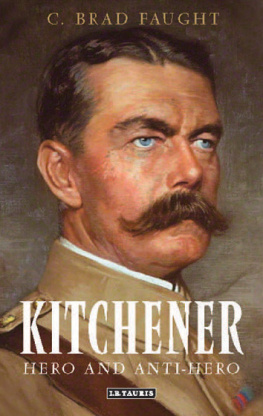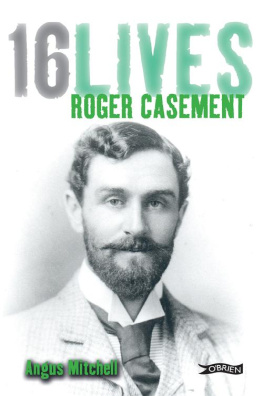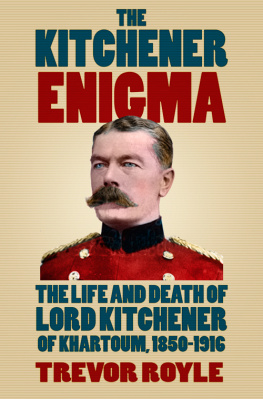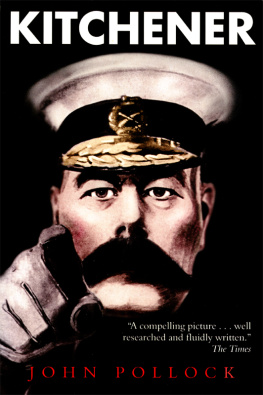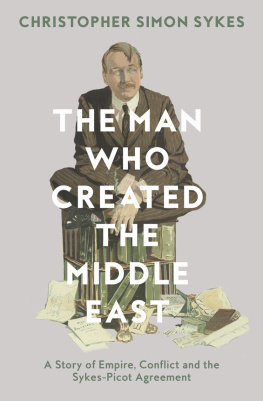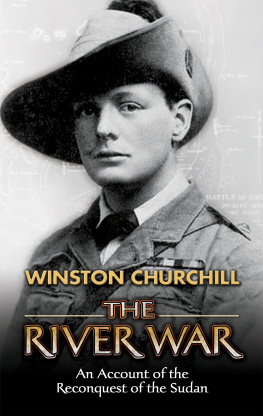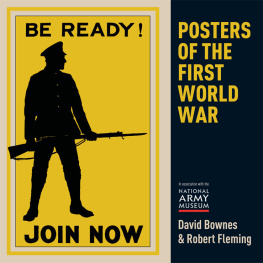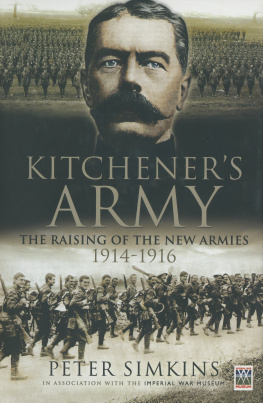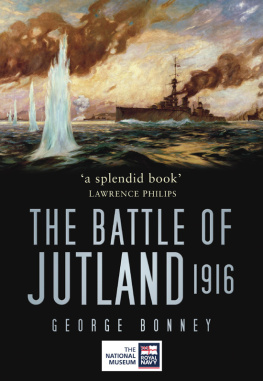
C. Brad Faught is Professor and Chair of the Department of History at Tyndale University College in Toronto. A fellow of the Royal Historical Society and a senior fellow of Massey College at the University of Toronto, he is the author of five previous books. In 2012, he was the recipient of the Queen Elizabeth II Diamond Jubilee Medal.
Written in a very clear and readable style and based upon thorough and excellent research. The various and often dramatic phases of Kitchener's rapid rise to national and international fame are chronicled with great skill, shrewdness and sensitivity one of the best biographies of Kitchener to be written so far.
Denis Judd, author of Empire: The British Imperial Experience from 1765 to the Present (I.B.Tauris, 2012)
KITCHENER
Hero and Anti-Hero
C. B RAD F AUGHT

Published in 2016 by
I.B.Tauris & Co. Ltd
London New York
www.ibtauris.com
Copyright 2016 C. Brad Faught
The right of C. Brad Faught to be identified as the author of this work has been asserted by the author in accordance with the Copyright, Designs and Patents Act 1988.
All rights reserved. Except for brief quotations in a review, this book, or any part thereof, may not be reproduced, stored in or introduced into a retrieval system, or transmitted, in any form or by any means, electronic, mechanical, photocopying, recording or otherwise, without the prior written permission of the publisher.
Every attempt has been made to gain permission for the use of the images in this book. Any omissions will be rectified in future editions.
ISBN: 978 1 78453 350 2
eISBN: 978 0 85772 960 6
ePDF: 978 0 85772 756 5
A full CIP record for this book is available from the British Library
A full CIP record is available from the Library of Congress
Library of Congress Catalog Card Number: available
To the memory of my grandfather, Gunner John George Faught, a Canadian soldier of World War I
Also by the Author
Clive: Founder of British India
Into Africa: The Imperial Life of Margery Perham
The New A-Z of Empire: A Concise Handbook of British Imperial History
Gordon: Victorian Hero
The Oxford Movement: A Thematic History of the Tractarians and Their Times
Contents
Preface
W riting a full-scale biography of the British military officer and statesman Horatio Herbert Kitchener, Earl Kitchener of Khartoum (18501916), in what is a thoroughly post-colonial and post-British imperial age, begs the question, it seems to me, of why? A century after his death and well-beyond the time in which he was considered to be both heroic and important, what is there about him that might repay close re-examination? The ongoing centenary of World War I, as well as the marking of the one hundredth anniversary of the death of Kitchener himself this year, might provide reason enough for a new biography, and in part I am motivated by these two reasons. But beyond mere chronological convenience, lie the compelling and resonant questions of his contestable historical reputation in Britain, as well as in the colonies and territories of the former British Empire, especially where he was active. It is part of the normal undulations of history that the reputations of great men and women rise and fall in public estimation, and Kitchener's is clearly one of these. From the moment of his shocking death by drowning in June of 1916, Kitchener's life story fell into the hands of biographers and publicists of various kinds, and if nothing else an examination of a hundred years of how he has been assessed and re-assessed makes for a highly revealing exercise in epochal historical reading.
In 1920, four years after Kitchener's death and two years removed from the end of the cataclysmic World War I, Sir George Arthur, who had been his personal private secretary during the first two years of the conflict, published a three-volume official biography, Life of Lord Kitchener. Magnus was much closer to Lloyd George's critical stance towards Kitchener than he was to Arthur's relative hagiography, but altogether the subject still remained in wait of superior work.
Since Magnus's in 1958 a number of other major biographies of Kitchener have been published: George Cassar's in 1977; Trevor Royle's in 1985; and, most recently, John Pollock's two-volume work in 1998 and 2001, respectively, of which Cassar's is the most perceptive and did much to re-set the balance in how Kitchener was viewed both by scholars and, to a lesser extent, by the wider public. In addition, Kitchener's life and work has been the subject of many shorter biographies and essays. As well, he has been portrayed in the well-known feature films Khartoum (1966) and Breaker Morant (1980), and his life examined in a television documentary, Reputations: Kitchener: The Empire's Flawed Hero, broadcast by the BBC in 1998.
Our own age, while much less interested in and accepting of the traditionally heroic status accorded Kitchener by his contemporaries, reveals its own preoccupations by focusing on, for example, his allegedly ambiguous sexual identity; or more pointedly, his minorism, as the term of the time denoted homosexuality. Was K Gay?, asked a writer in 1999.
At any rate, in writing this up-to-date biography my main aspiration has been to comprehend Kitchener as fully as possible within the context of his own time and thereby avoid either overt approbation of him on one hand, or censure by a twenty-first-century readership on the other. Of course all good biography attempts to achieve this kind of balanced end, but the reputations of outsized historical figures such as Kitchener make the task more difficult than it is with lesser or little known subjects. Accordingly, and with the benefit of much antecedent scholarship and full access to the rich Kitchener archive, it is hoped that his life as portrayed here may be as complete as the form allows. Biography, like any other historico-literary pursuit is partial; indeed, its very nature makes it to be such. But to the degree that exhaustiveness can be achieved within the arc of some 120,000 words this book attempts to capture Kitchener the man in all stages and places of his life, ranging as it did from his childhood in Ireland through a number of significant military, governmental, and pro-consular appointments in Sudan, Egypt, South Africa, India, and, of course, finally, in England itself. In the end, it will be suggested that the original impulse of biographers to designate him as heroic was correct, although requiring of significant caveats.
Acknowledgements
H istory-book writing is a collaborative exercise and cannot be undertaken successfully without the help and support of a number of people and institutions. To that end, firstly, I should like to thank the staff at the National Archives (NA) in London. The NA holds the main collection of Kitchener Papers and writing his biography would simply be impossible without access to this finely-housed collection. Similarly, the Kitchener letters that form part of the larger India Office archive kept at the British Library (BL) in London are an invaluable source for a biographer. I thank the staff of the BL's Asian & African Studies Reading Room for their excellent service, as well as those in the Western Manuscripts Reading Room. I should like to thank also the Bodleian Library, Oxford, for its related manuscript sources, especially the Asquith Papers. The National Portrait Gallery in London is a treasure-trove of photos for a subject like Kitchener so my thanks go to the staff there for providing many of the images reproduced in this book. My thanks go also to the Broome Park Golf and Country Club in Kent the site of Kitchener's former country estate for allowing me to wander round the property at will and to take photographs, one of which is reproduced in the pages that follow.
Next page
